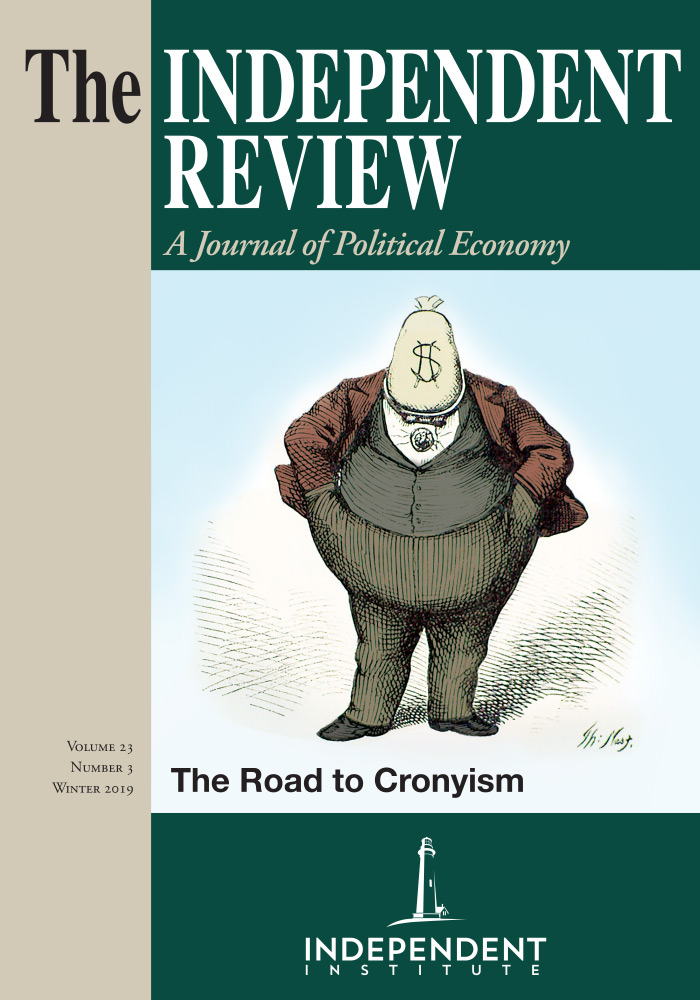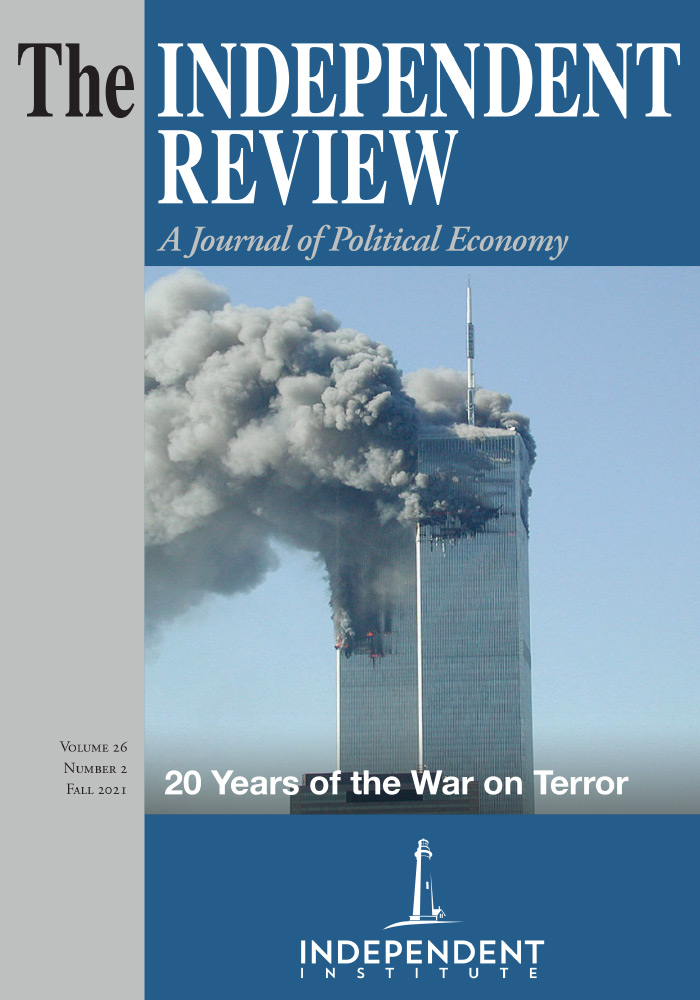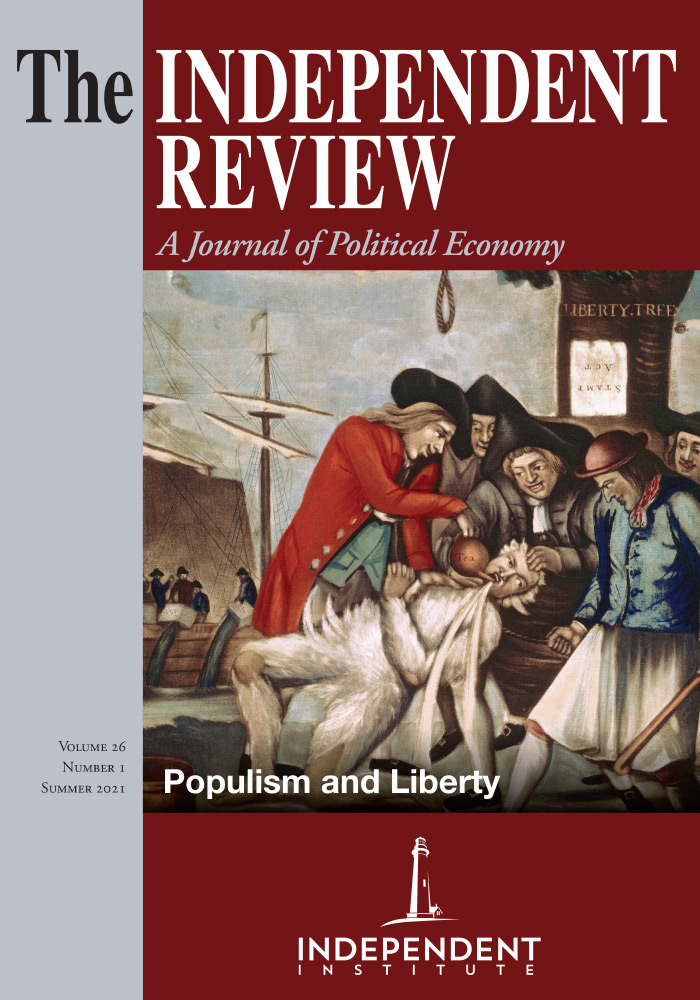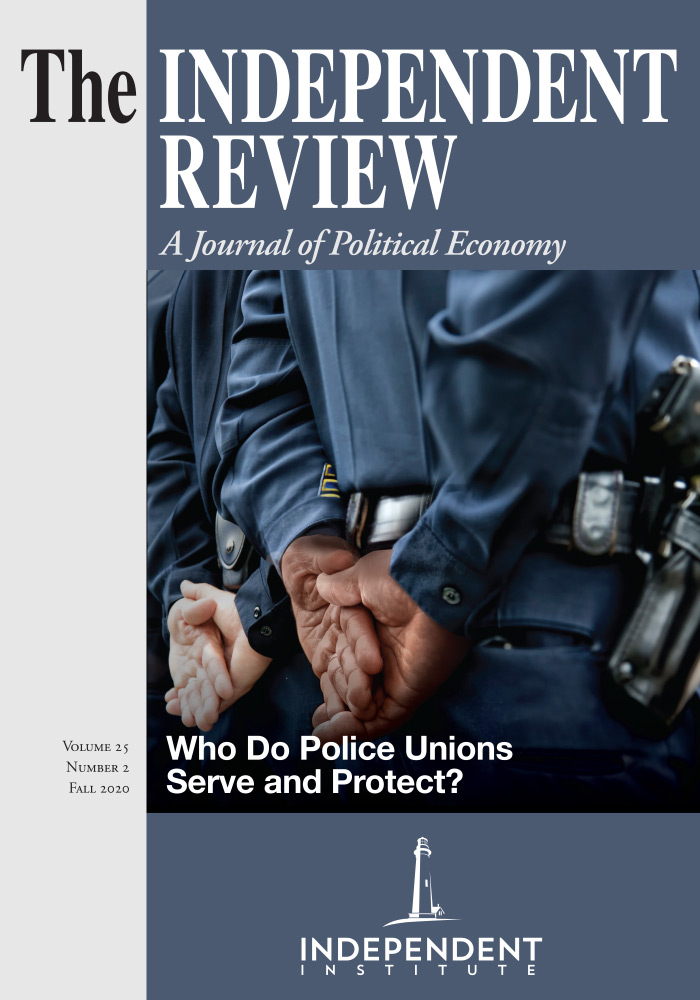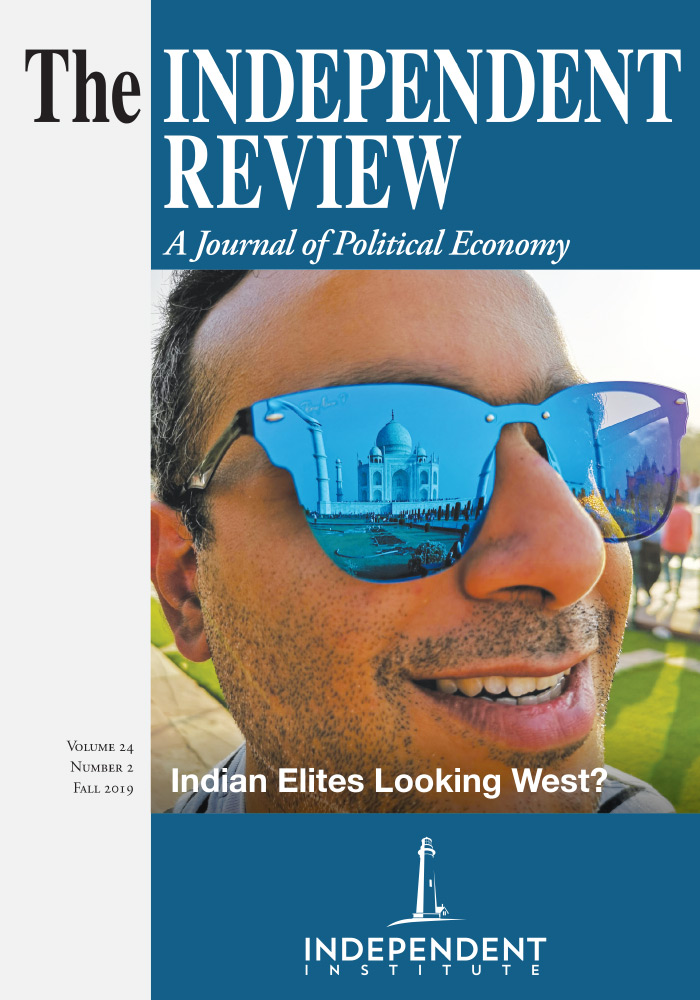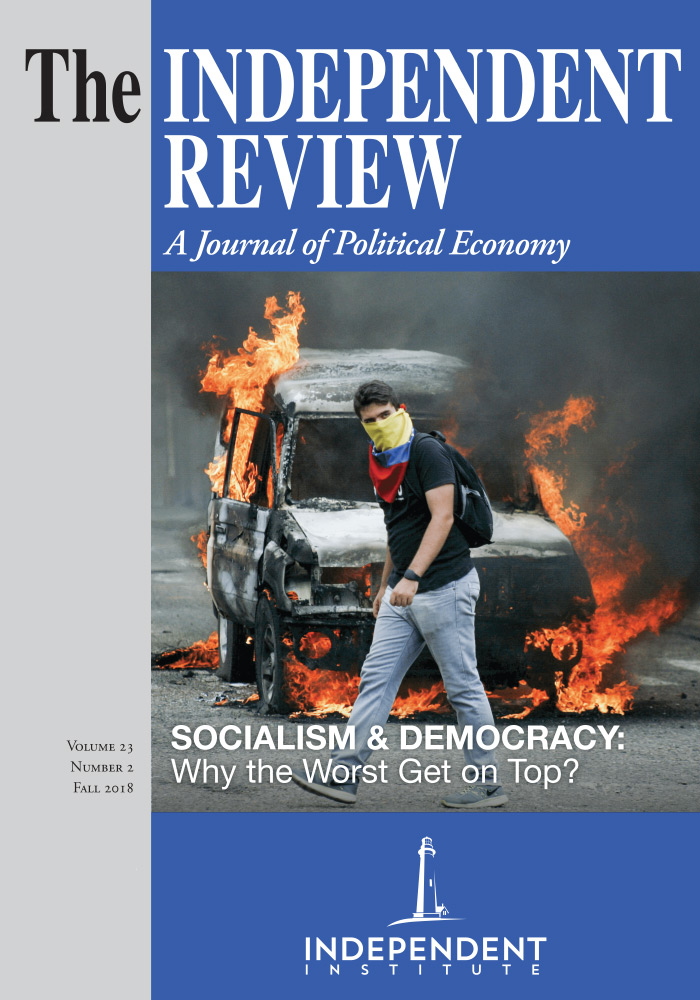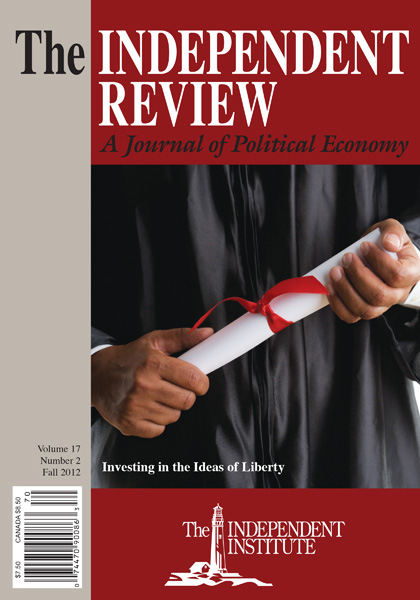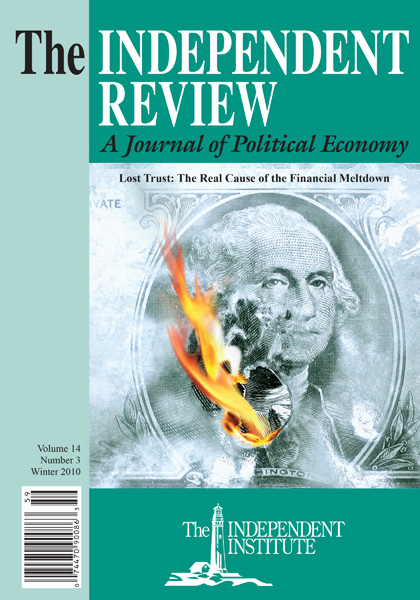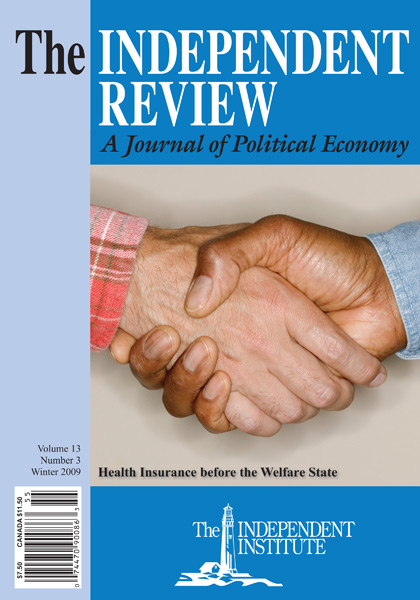Capitalism is a system built around a respect for the property rights individuals have regarding what they own. Any intrusion against these property rights, whether one-off aggression from criminals or institutions built around coercion such as the government, are inherently at odds with the capitalist system. To argue that this aggression against property rights is allowed to exist is the first step towards the corruption of the capitalist system into one of crony capitalism–a system built around appeasing the interests of a selected elite, property rights disregarded in favor of arbitrary decision-making made to benefit those select few.
Michael C. Munger and Mario Villarreal-Diaz’s paper, “The Road to Crony Capitalism” (2019, 332), proposes that “capitalism has a tendency ... to devolve into crony capitalism” and “that cronyism is intrinsic to, and not separable, from capitalism,” as it incentivizes entrepreneurs and politicians to collude with one another. Contrary to this, I argue that it is not capitalism that causes cronyism but rather government that does so, particularly democratic government.
Munger and Villarreal-Diaz argue various ways in which cronyism would come from a capitalist system, yet their arguments prove that cronyism is not intrinsic to capitalism as all their points imply that some sort of cronyism or government coercion must already be within the system for these policies to occur. Their paper argues for the tendency of capitalism to devolve into cronyism by stating that “paradoxically, if you believe that the pure form of capitalism is sustainable, you must claim that either corporate leaders or politicians, and probably both, are morally better than the rest of us” (335); yet how in any sense is this system a “pure form of capitalism” if politicians and thereby the government exists? The paper defines capitalism as a system in which “all goods, both intermediate goods and final goods, are owned privately,” yet later adds to the definition that “an economy remains capitalist so long as the government, or any other agency for that matter, refrains from intervening coercively in the peaceful lives of citizens” (332). If “under pure capitalism there are no taxes” and “government neither resorts to aggression under capitalism nor does it sanction its use by others” (332) then how would these politicians who would be so willing to collude with entrepreneurs possibly exist? Under this system of ‘pure capitalism’ there would be no government in the first place, as they would have no monopoly on violence to enforce taxes, price controls, regulations, and other tools needed to enforce these policies of cronyism in the first place.
As such, the alleged tendency of capitalism to devolve into cronyism can only actually occur when the government, having a monopoly on violence, exists. This state of affairs, inherently anti-capitalist in nature, immediately rules out the fact that this system could be considered in any way to be ‘pure capitalism,’ as in what way could it be said that the property rights people possess are properly respected if the government has the right to tax and regulate it? Contrary to Munger and Villarreal-Diaz’s claim that “pure capitalism requires politicians to forego their own self-interest for the public good” (336), pure capitalism merely requires that politicians, and the rest of the government apparatus, do not exist in the first place. The fact that the only way Munger and Villarreal-Diaz are able to argue that capitalism has a tendency towards cronyism is by assuming that organizations inherently at odds with the capitalist system of private property, such as the government, exists, proves that this alleged tendency capitalism has towards cronyism only comes about from systems inherently at odds with capitalism and not from capitalism itself.
Rather, what instead is proven is that so long as the government exists an incentive is created for its monopoly on violence to be used to tax, regulate, and subsidize certain individuals or groups at the cost or benefit of others, and that these powers, especially in democratic governments, have an incentive to grow, affecting more and more of the economy until a system in which the government controls everything is created. Under this perspective, Munger and Villarreal-Diaz’s arguments about the incentives entrepreneurs face are still true—they do “turn to the second ‘investment’ strategy, in which they focus less on new products or better manufacturing and spend their money instead on lobbyists and political influence” (340). It is just that this problem does not exist under a system of ‘pure capitalism’ but rather in one in which a government, having the power to coerce and therefore inherently at odds with private property, exists. After all, if it has already been conceded that it is morally acceptable that an institution with the power to aggress against innocents by controlling their property and persons through taxation and regulation then what moral argument can be made against this power expanding? Similarly, what argument could be made that business owners should then not try and use this power for their own gain? By allowing even the most minimal government to exist, property rights are immediately forsaken and the path to Leviathan is laid out for anyone willing to take it.
Though cronyism is not intrinsic to capitalism and instead the consequence of any sort of government existing, this fear of a system that leads to a “kind of road to serfdom, where giant corporate syndicates achieve a parallel kind of economic planning every bit as pernicious as that feared by Hayek” (332) is especially true for democratic governments as noted by Hans-Hermann Hoppe in his book Democracy: The God That Failed (2001). Democratic rule, completely at odds with private ownership by individuals, creates a system in which the people controlling parts of the government apparatus do not own any of it. Instead, what occurs is that they are given permission for a select period of time to decide how parts of the apparatus are used, to command its assets and what is done with them while in office. They have no permission to sell what they control or to bequeath it to their children, merely having the rule that until they are out of office they are allowed to take advantage of it.
This system of caretakers, in which individuals are elected to control how something is used for a short period of time, creates an incentive for those in office to leech from the system as much as possible before their term ends, caring only about the short-term prospects. After all, what incentive do politicians have to minimize the use of what they control and not extract as much value from it as they possibly can in the period they have? Any attempt to arrange policies consistent with long-term goals—such as cutting government budgets—provides nothing for them as doing so means forgoing their opportunity to extract wealth they can actually use. Even the alleged “incentive" not to anger voters actually worsens their incentives, resulting in competition among politicians as to who will engage in the most amount of redistributionist policies—taking from the haves to give to the have-nots as a way of securing votes.
As such, if you are a politician in a democratic government, you have very few disincentives not to hurt the long-term future of your nation’s economy, and are instead highly incentivized to focus on the short term and enrich yourself by enacting cronyist policies. Likewise, if you are not an economic entrepreneur but instead a political entrepreneur, realizing that you can gain by using the government’s power to your advantage, it becomes even easier for you to push for cronyist policies, benefitting your business at the expense of others. After all, the politician you bribe does not benefit from caring about what long term consequences your cronyist policies will cause.
This lack of care for the consequences of cronyist policies created by democratic government produces in the long term a system that can barely sustain itself, in which thousands of restrictions on property rights results in a system so bloated with red tape that the lightest breeze could send the whole system asunder. Those few corporations left at the top, nominally considered to be private enterprise, in reality serve as another part of the government apparatus, becoming similar to the government in how bureaucratic and inefficient they are, propped up due to coercion. This system, where “giant corporate syndicates achieve a parallel kind of economic planning every bit as pernicious as that feared by Hayek” (332) ultimately comes about due to government, especially democratic government, and not capitalism.
Even under a system in which the government is ruled by a single person, allowed to enact whatever laws he deems fit, there would be less of an incentive for that individual to engage in cronyist policies that ultimately create a system in which mega corporations rule than compared to the incentives of a democratic system. Compared to politicians under a democratic government, who are incentivized to get as much out of the system as they possibly can in the short time frame they have, this single ruler, since he controls the entire government, would have an incentive to think of the long-term prospects of whatever policies he ends up implementing. This is not to say that he would not enact any cronyist policies; in having a unique power to coerce he still is a leech like any ordinary politician. But he would be incentivized not to enact too many, lest he strangle the long-term growth of the country he controls.
Even Munger and Villarreal-Diaz state numerous times that this condition of capitalism’s tendency to become cronyist occurs when the government is democratic. At the beginning of the paper, they ask whether “capitalism has a tendency ... to devolve into crony capitalism” (332) but later when they repeat it, they instead say that “the problem we have addressed is whether capitalism in a democratic setting inevitably tends toward cronyism” (339, emphasis added).
This issue of Munger and Villarreal–Diaz leaving out conditions to certain questions they propose, drastically changing how the question is answered, as well as contradicting previously stated lines of thought, occurs multiple times throughout the paper. Besides the contradiction already stated about how they attempt to reconcile a pure capitalist system that respects property rights (capitalism) with an institution that does not (government), they also attempt to propose a solution regarding cronyism that contradicts their previous arguments defending their assertion that it is intrinsic to capitalism. The authors spend numerous paragraphs lambasting any thought that moral concerns would cause entrepreneurs and politicians not to push for and enact cronyist policies, stating “why would rational politicians eschew using their office to sell valuable services that are entirely within their legal power to provide” (335), “pure capitalism requires politicians to forego their own self-interest for the public good” (336), and “our side can’t invoke character, sense of fair play, or public spirit when it comes time to ‘Just say no!’ to cronyism” (336). In their conclusion, however, the suggestions of these great critics of using moral values to stop entrepreneurs and politicians from colluding, “is to empower entrepreneurs not to want to become rent seekers and to constrain state actors not to sell off rents in the first place” (343).
Even though they immediately concede that it would be difficult “to constrain state actors not to sell off rents in the first place,” this suggestion is completely opposite to what they spent the rest of the paper arguing against. Their words can easily be used against the solution they propose, in light of the numerous points at which they acknowledge that the goal to have better entrepreneurs and politicians who care about morals would be contrary to those same people’s self-interest; the result is a proposal arguing for entrepreneurs and politicians to act irrationally by not colluding or pushing for cronyism.
This solution, of constraining state actors, whether by holding them to certain moral standards or through such “institutions such as the Bill of Rights” (341), further demonstrates that cronyist policies end up being enacted due to the tendencies of democratic government and not of capitalism. Democracies, in which politicians are elected based on the votes they receive and are only in office for a select number of years, are looked upon more favorably than governments ruled by a single individual because under democracy people end up identifying themselves with the politicians. As such, the distinction between the common man and politicians are blurred. The common man sees the politician as one of his own and thus looks friendlier upon his rule than compared to someone such as an entrepreneur or individual ruler of a government whose position was not obtained by people voting on a ballot. Consequently, the parasitical quality of the politician is blurred and becomes harder for the common man to realize. Even in a situation where a politician someone did not vote for is elected, that person becomes less willing to take action since whatever policies that politician implements can theoretically be undone in the next election by voting that politician out and replacing him with someone who will claim to repeal those policies.
Applying this to cronyism and the tendency for democracies to implement cronyist policies, democracy creates even fewer incentives for people to push back against cronyist policies because of how a democratic government is viewed by the people. When a politician enacts a cronyist policy it becomes less clear that he is doing this for his own gain and he is better able to get away with claiming such policies as being for the benefit of his constituency. Similarly, pushback against cronyist policies is further diluted, the people wishing for them to be repealed being less likely to be angered over such policies as they are under the impression that all they must do is wait until the next election and elect someone who will promise to repeal those policies.
Even “institutions such as the Bill of Rights” are unable to stop cronyist policies from being enacted because the same group enacting cronyist policies are the ones who get to interpret what the Bill of Rights means. Arguments about checks and balances are likewise futile, as all three branches of government are fundamentally still parts of the government. If anything, the institutions which are meant to minimize government intrusion into the economy arguably end up letting the government get away with these policies as people who would normally fight back against cronyism end up clinging to these documents instead of fighting for permanent, lasting changes in the structure of government.
Despite what Michael C. Munger and Mario Villarreal-Diaz argue in their paper “The Road to Crony Capitalism” (2019), capitalism does not have a tendency to result in cronyism nor is cronyism in any way intrinsic to the capitalist system. Rather, cronyism is only symptomatic of government, an anti-capitalist institution, attempting to exist alongside the market economy. If one wishes to eliminate cronyism then one ought to look at the source of the problem—the existence of government—rather than its enemy, the capitalist system that respects property rights.
References
Munger, Michael C., and Mario Villarreal-Diaz. 2019. The Road to Crony Capitalism. The Independent Review 23, no. 3: 331-344.
Hoppe, Hans-Hermann. 2001. Democracy: The God That Failed. New Brunswick, NJ: Transaction Publishers.

